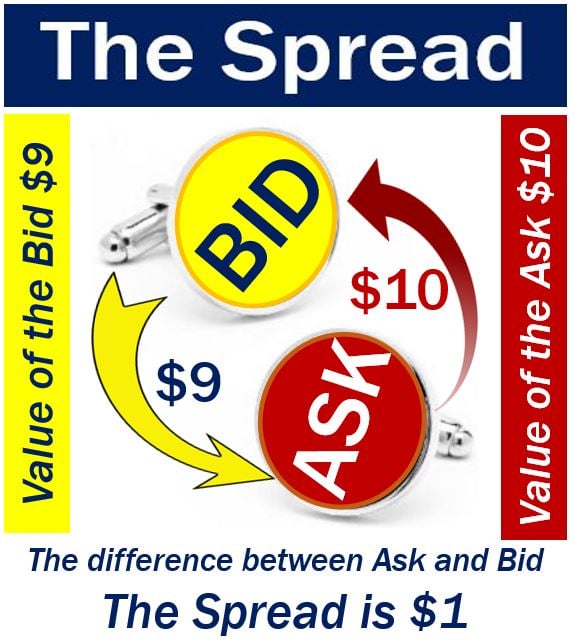The spread is the difference between the prices of two items or the difference between one interest rate and another. In the buying and selling of stocks, it is the difference between the current bid and ask prices of a company share – usually referred to as the bid/offer or bid/ask spread.
The underwriting spread is the difference between how much the underwriting group paid in a new issue of securities and how much the securities are offered for sale to the public. As far as the underwriters are concerned, the spread is their profit margin.
In bond trading, the term refers to the difference in the yield of bonds with different maturities but the same quality, or the same maturity but different qualities.
In the futures market, it is the difference between different delivery dates for the same commodity, currency or asset.

The Z-spread of an MBS (mortgage-backed security) is the parallel shift over the zero-coupon Treasury yield curve required for discounting a pre-determined cash flow schedule to arrive at the MBS’ current market price. The term is commonly used in the CDS (credit default swap) market as a measure of credit spread that is comparatively insensitive to the particulars of specific government or corporate bonds.
In investment markets, when the spread is wide, we say there is a wide market.
Spread in statistics
In statistics, the term – often referred to as dispersion – is a method of describing how spread out a set of data is.
When a set of data has a large value, those values in the set are scattered widely – when it is small, the values in the set are clustered tightly.
Statistics How To says: “The spread of a data set can be described by a range of descriptive statistics including variance, standard deviation, and interquartile range.”

What is spread betting?
Spread betting is a form of gambling in which the person who is placing bets – the bettor – wins or loses money according to the margin by which the value of a specific outcome varies from the bookmarker’s spread of expected values.
It is also a tax-free way to speculate on the movement of prices of a financial market without owning the underlying asset. Instead, the players predict whether their market’s price will go up or down – how right or wrong they are determines how much money they have made or lost.
